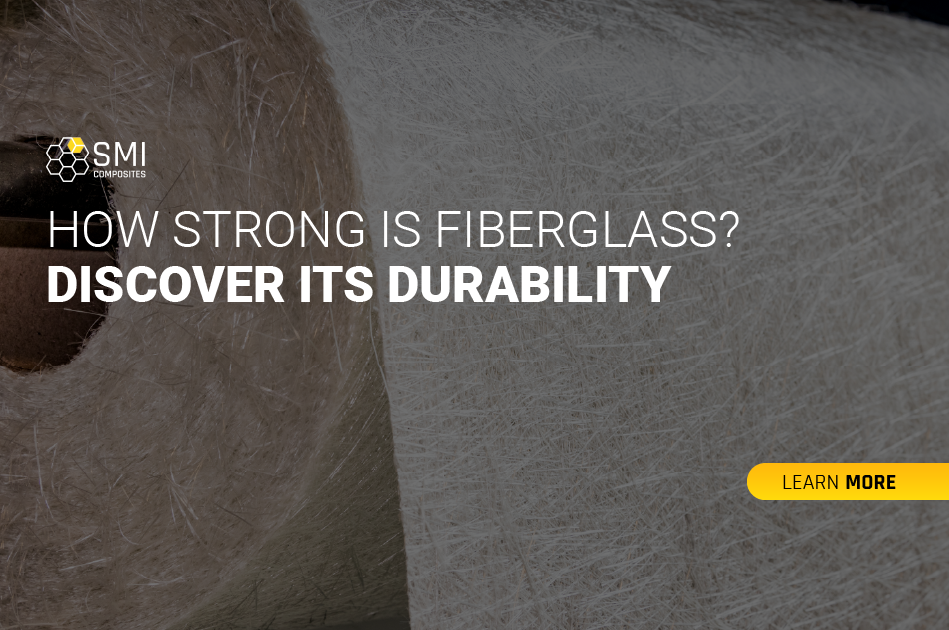
According to a report by Fortune Business Insights, the global fiberglass market is expected to reach $20.5 billion by 2032, with a CAGR of 4.8%. This growth is facilitated by the increasing demand for fiberglass in sectors like the construction industry.
Many engineers choose fiberglass over traditional materials like metal because of its strength and stiffness. It’s also versatile and lightweight, making it suitable for various applications. Its ability to withstand high tensile strength and corrosion has made it a top choice for demanding applications.
So, how strong is fiberglass? Keep reading to discover its remarkable quality.
Understanding Fiberglass Tensile Strength
Fiberglass is made out of a combination of resins such as polyester. It also includes reinforcements of mat and fiberglass roving. Other components include additives like fire retardant and a surface veil, which makes it corrosive and UV-resistant.
The strength of fiberglass depends on the type and arrangement of fiberglass fibers within the resin matrix. If properly engineered, it can withstand tensile strength exceeding that of steel.
For instance, fiberglass reinforced with the polymer can achieve higher megapascals (MPa) than traditional steel. This strength comparison shows fiberglass is ideal for applications where weight-saving is essential.
Fiberglass Durability in Harsh Environments
Unlike wood, fiberglass does not rot or warp when exposed to moisture. It also does not rust easily like steel. This makes it suitable for industrial environments where water exposure is common.
The material is also UV-resistant, allowing it to last many years with minimal maintenance. This makes it suitable for outdoor applications such as roofing and signage. Additionally, fiberglass can withstand extreme temperature fluctuations, helping it retain its strength and form during cold and hot seasons.
Fiberglass Versus Steel Comparison
While steel is known for its strength, it’s heavier than fiberglass and prone to corrosion. Fiberglass outshines it because it’s lighter and more resistant to environmental damage. Fiberglass also requires less upkeep, making it a cost-effective alternative.
Its lightweight nature facilitates easier handling and installation. Its low thermal conductivity makes it an effective insulator that is ideal for energy savings.
Fiberglass Applications
Applications of fiberglass are vast and varied. In the construction industry, it’s used to:
- Reinforce bars
- Insulate buildings
- Build facades and siding
- Manufacture pipes
- Form structural components
- Produce architectural moldings
In the automotive industry, fiberglass components make body panels and interior components. Also, they’re used to make car parts and accessories and energy absorption components. The strength of fiberglass makes it ideal for crafting racing cars.
Fiberglass also manufactures durable consumer products such as boats and household items.
How Strong Is Fiberglass? Discover Its Remarkable Durability Today
Perhaps you’ve been wondering, “How strong is fiberglass?” Regarding fiberglass strength comparison, it’s a sturdier and more durable material than other options like aluminum. This makes it a reliable and valuable material for the construction, infrastructure, and automotive industries.
Are you looking for quality fiberglass components designed to meet your unique needs? At SMI Composites, we’ve got you covered. Our commitment is to provide quality, engineered parts, and services to help bring your vision to life.
Contact us today for all your fiberglass component needs.
